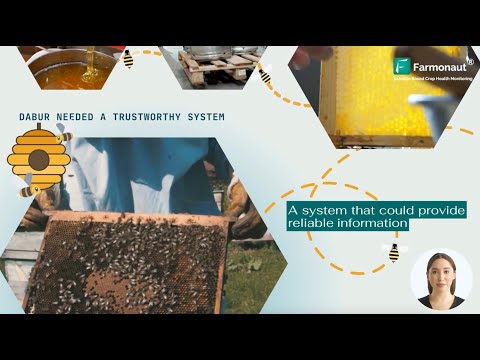Australian Tea Tree Oil: Cultivating Global Demand with Sustainable Farming Practices
“Australian tea tree oil is exported to over 70 countries, with approximately 90% of production shipped internationally.”
Welcome to an in-depth exploration of the thriving Australian tea tree oil industry. As we delve into this fascinating sector, we’ll uncover the current landscape, future potential, and the sustainable practices that are shaping its growth. Join us as we navigate through the opportunities and challenges facing this valuable export, and discover how innovation and collaboration are driving its success in global agricultural markets.
The Rise of Australian Tea Tree Oil
Australian tea tree oil has become a global phenomenon, with its production experiencing significant growth in recent years. This surge is primarily driven by expanding planting areas and improved agronomic practices. As we examine the industry’s current state, it’s clear that the demand for this versatile oil is reaching new heights.

The Australian tea tree oil industry has positioned itself as a key player in the global market, with approximately 90% of its production being exported to over 70 countries. This impressive reach demonstrates the oil’s widespread appeal and the industry’s ability to meet international demand.
Sustainable Farming Practices: The Backbone of Quality Production
At the heart of the Australian tea tree oil industry’s success lies a commitment to sustainable farming practices. These methods not only ensure the longevity of production but also maintain the high quality that global markets have come to expect from Australian tea tree oil.
- Soil Management: Proper soil management is crucial for tea tree cultivation. Australian farmers focus on maintaining optimal soil pH levels and nutrient balance to support healthy plant growth.
- Water Conservation: Efficient irrigation systems and water management techniques are employed to conserve this precious resource while ensuring adequate hydration for tea trees.
- Pest Control: Integrated pest management strategies are implemented to minimize the use of chemical pesticides, protecting both the environment and the purity of the oil.
These sustainable practices not only benefit the environment but also contribute to the superior quality of Australian tea tree oil, setting it apart in global agricultural markets.
Innovations in Tea Tree Oil Production
The Australian tea tree oil industry is at the forefront of agricultural innovation, constantly seeking ways to improve production efficiency and oil quality. Research and development play a crucial role in addressing emerging challenges and maintaining the industry’s competitive edge.
“The Australian tea tree oil industry’s growth is driven by expanding planting areas and improved agronomic practices.”
Some key areas of innovation include:
- Genetic Improvement: Researchers are working on developing tea tree varieties with higher oil yields and improved disease resistance.
- Harvesting Technology: Advanced harvesting equipment is being designed to increase efficiency and reduce labor costs.
- Distillation Techniques: New distillation methods are being explored to enhance oil quality and extraction rates.
These innovations are crucial for maintaining Australia’s position as a leading producer of high-quality tea tree oil in an increasingly competitive global market.
The Role of Agritech in Tea Tree Oil Production
As the tea tree oil industry continues to grow, the adoption of agritech solutions is becoming increasingly important. These technologies offer farmers valuable insights and tools to optimize their production processes.
Farmonaut, a pioneering agricultural technology company, offers advanced satellite-based farm management solutions that can benefit tea tree oil producers. Their platform provides real-time crop health monitoring, AI-based advisory systems, and resource management tools, which can be invaluable for tea tree farmers looking to maximize their yields and efficiency.
To explore how Farmonaut’s solutions can benefit your tea tree farm, visit their web app or download their mobile apps:
Quality Assurance in the Tea Tree Oil Industry
Maintaining high quality standards is paramount for the Australian tea tree oil industry to retain its competitive edge in global agricultural markets. Rigorous quality assurance measures are implemented throughout the production process to ensure that the oil meets or exceeds international standards.
- Testing and Certification: Regular testing of oil samples for purity and composition.
- Traceability: Implementation of systems to track oil from farm to consumer.
- Industry Standards: Adherence to strict industry-wide quality standards.
These measures not only guarantee the quality of Australian tea tree oil but also build trust with international buyers and end consumers.
Challenges Facing the Australian Tea Tree Oil Industry
Despite its success, the Australian tea tree oil industry faces several challenges that require ongoing attention and innovation:
- Competition from Cheaper Alternatives: The emergence of synthetic alternatives and tea tree oil production in other countries poses a threat to market share.
- Climate Change: Changing weather patterns and increased frequency of extreme weather events can affect tea tree cultivation.
- Resource Management: Balancing the expansion of planting areas with sustainable land and water use practices.
- Market Volatility: Fluctuations in global demand and pricing can impact industry stability.
Addressing these challenges requires a collaborative effort from all stakeholders in the industry, including farmers, researchers, and policymakers.
The Future of Australian Tea Tree Oil
The future of the Australian tea tree oil industry looks promising, with several factors contributing to its potential growth:
- Increasing Global Demand: Growing awareness of tea tree oil’s benefits is driving demand in various sectors, including cosmetics, pharmaceuticals, and household products.
- Research and Innovation: Ongoing research into new applications for tea tree oil is opening up new market opportunities.
- Sustainable Practices: The industry’s commitment to sustainability aligns with global trends towards eco-friendly products.
- Government Support: Continued support from Australian government agencies in research and development enhances the industry’s competitiveness.
As the industry evolves, the integration of advanced technologies like those offered by Farmonaut can play a crucial role in optimizing production and ensuring sustainability. For more information on how satellite-based farm management can benefit tea tree oil production, visit Farmonaut’s API or check out their API Developer Docs.
Impact on Rural Economies
The growth of the Australian tea tree oil industry has had a significant positive impact on rural economies:
- Job Creation: The industry provides employment opportunities in rural areas, from farming to processing and distribution.
- Economic Diversification: Tea tree oil production offers an alternative income source for agricultural communities.
- Infrastructure Development: The industry’s growth has led to improvements in rural infrastructure to support production and transportation.
- Skills Development: The adoption of new technologies and sustainable practices is enhancing the skill set of rural workers.
These benefits underscore the importance of the tea tree oil industry in supporting and revitalizing rural communities across Australia.
Collaborative Efforts for Sustainable Growth
The success of the Australian tea tree oil industry is largely due to collaborative efforts among various stakeholders:
- Industry Associations: Organizations like the Australian Tea Tree Industry Association (ATTIA) play a crucial role in coordinating industry-wide initiatives and representing the sector’s interests.
- Research Institutions: Partnerships with universities and research centers drive innovation in cultivation methods and oil applications.
- Government Agencies: Support from government bodies helps in addressing regulatory challenges and promoting Australian tea tree oil in international markets.
- Farmers and Producers: Knowledge sharing and collective problem-solving among producers contribute to industry-wide improvements.
These collaborative efforts ensure that the industry can respond effectively to challenges and capitalize on new opportunities.

Environmental Stewardship in Tea Tree Oil Production
The Australian tea tree oil industry is committed to environmental stewardship, recognizing the importance of preserving the natural ecosystems that support tea tree cultivation:
- Biodiversity Conservation: Efforts are made to maintain and enhance biodiversity in and around tea tree plantations.
- Carbon Footprint Reduction: The industry is exploring ways to reduce its carbon footprint through efficient production methods and renewable energy use.
- Sustainable Land Use: Careful planning ensures that tea tree cultivation does not encroach on sensitive ecological areas.
- Water Management: Advanced irrigation systems and water recycling techniques are employed to minimize water usage.
These environmental initiatives not only contribute to the sustainability of the industry but also align with growing consumer preferences for eco-friendly products.
The Role of Technology in Sustainable Tea Tree Oil Production
Technology plays a crucial role in ensuring the sustainable production of Australian tea tree oil. Advanced tools and systems help farmers optimize their operations while minimizing environmental impact:
- Precision Agriculture: GPS-guided machinery and drones are used for precise planting, fertilization, and harvesting, reducing resource waste.
- Remote Sensing: Satellite imagery and aerial surveys help monitor crop health and detect issues early.
- Data Analytics: Advanced analytics tools process farm data to provide insights for better decision-making.
- Automated Systems: Automated irrigation and climate control systems optimize water usage and growing conditions.
These technological advancements not only improve efficiency but also contribute to the overall sustainability of tea tree oil production. Farmonaut’s satellite-based farm management solutions can be particularly beneficial in this regard, offering real-time insights into crop health and resource management. To learn more about how these technologies can be applied to tea tree cultivation, visit Farmonaut’s web app.
Market Trends and Consumer Preferences
Understanding market trends and evolving consumer preferences is crucial for the continued success of the Australian tea tree oil industry:
- Natural and Organic Products: Increasing consumer demand for natural and organic personal care products is driving growth in tea tree oil usage.
- Aromatherapy and Wellness: The growing popularity of aromatherapy and natural wellness solutions is creating new opportunities for tea tree oil applications.
- Sustainable and Ethical Sourcing: Consumers are increasingly interested in products with transparent and ethical supply chains.
- Multi-functional Products: There’s a trend towards products with multiple benefits, where tea tree oil’s versatile properties are highly valued.
By staying attuned to these trends, the Australian tea tree oil industry can continue to innovate and meet changing consumer demands.
Industry Overview: Key Statistics and Projections
To provide a comprehensive understanding of the Australian tea tree oil industry’s current status and future prospects, let’s examine some key metrics:
| Metric | Current Value | 5-Year Projection | Growth Driver | Challenges |
|---|---|---|---|---|
| Global Export Value | $40 million | $60 million | Increasing demand in cosmetics and pharmaceuticals | Competition from synthetic alternatives |
| Planting Area | 5,000 hectares | 7,500 hectares | Government support for expansion | Land availability and environmental concerns |
| Production Volume | 900 tonnes | 1,300 tonnes | Improved agronomic practices | Climate variability |
| Number of Export Countries | 70+ | 85+ | Market diversification efforts | Trade barriers and regulations |
| Sustainable Farming Adoption Rate | 75% | 90% | Industry-wide sustainability initiatives | Implementation costs |
These statistics highlight the positive growth trajectory of the Australian tea tree oil industry, while also pointing to areas that require ongoing attention and innovation.
Research and Development Initiatives
Continuous research and development are vital for the Australian tea tree oil industry to maintain its competitive edge and address emerging challenges. Some key areas of focus include:
- Plant Breeding: Developing tea tree varieties with higher oil yields and improved disease resistance.
- Oil Composition Analysis: Researching the various compounds in tea tree oil and their potential applications.
- Sustainable Production Methods: Exploring new techniques to enhance sustainability in cultivation and processing.
- Medical Applications: Investigating the potential use of tea tree oil in novel medical treatments.
These research initiatives not only drive innovation within the industry but also contribute to its long-term sustainability and global competitiveness.
Regulatory Environment and Quality Standards
The Australian tea tree oil industry operates within a stringent regulatory environment, ensuring the production of high-quality oil that meets international standards:
- ISO Standards: Compliance with ISO 4730 and ISO 14001 for quality and environmental management.
- Good Manufacturing Practices (GMP): Adherence to GMP guidelines in processing and packaging.
- Export Regulations: Compliance with export regulations and international trade agreements.
- Organic Certification: Many producers obtain organic certification to meet growing demand for organic products.
These regulatory frameworks and quality standards contribute to the reputation of Australian tea tree oil as a premium product in global markets.
Conclusion: A Bright Future for Australian Tea Tree Oil
The Australian tea tree oil industry stands at the forefront of sustainable agriculture, combining traditional knowledge with modern innovation to meet global demand. As we’ve explored in this comprehensive overview, the industry’s commitment to quality, sustainability, and innovation positions it well for continued growth and success in the global market.
From the adoption of advanced technologies like those offered by Farmonaut to the implementation of sustainable farming practices, the industry is well-equipped to face future challenges and capitalize on new opportunities. The collaborative efforts of farmers, researchers, and industry bodies ensure that Australian tea tree oil will continue to be a sought-after product known for its quality and purity.
As consumers increasingly seek natural, sustainable products, the future looks bright for Australian tea tree oil. By staying attuned to market trends, investing in research and development, and maintaining high quality standards, the industry is poised to strengthen its position as a global leader in tea tree oil production.
FAQ Section
Q: What makes Australian tea tree oil unique?
A: Australian tea tree oil is renowned for its high quality, purity, and adherence to strict international standards. It’s sourced from native Australian Melaleuca alternifolia trees and produced using sustainable practices.
Q: How is tea tree oil harvested and processed?
A: Tea tree leaves are harvested using specialized equipment, then steam-distilled to extract the essential oil. The process is carefully controlled to ensure optimal oil quality and yield.
Q: What are the main uses of tea tree oil?
A: Tea tree oil is widely used in personal care products, cosmetics, and pharmaceuticals due to its antimicrobial and anti-inflammatory properties. It’s also used in aromatherapy and household cleaning products.
Q: How does the Australian tea tree oil industry ensure sustainability?
A: The industry implements various sustainable practices, including water conservation, integrated pest management, and biodiversity preservation. Many producers also pursue organic certification.
Q: What challenges does the Australian tea tree oil industry face?
A: Key challenges include competition from synthetic alternatives, climate change impacts, market volatility, and the need for continuous innovation to maintain competitiveness.
Q: How can technology benefit tea tree oil production?
A: Technologies like satellite-based farm management systems, precision agriculture tools, and advanced analytics can optimize production, improve resource management, and enhance overall sustainability in tea tree cultivation.
For more information on how technology can revolutionize tea tree oil production and other agricultural practices, explore Farmonaut’s innovative solutions:



















